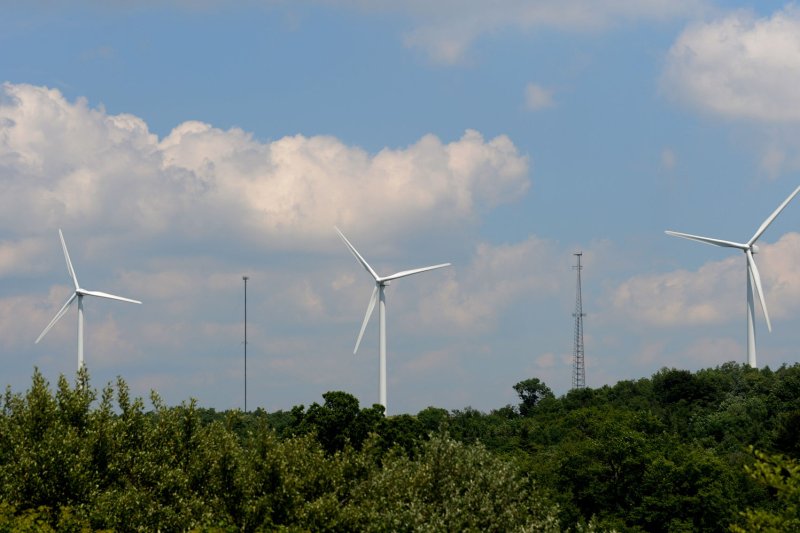Onshore wind power could be the cheapest source of electricity by the middle of the century, a report from British energy BP found. File photo by Pat Benic/UPI |
License Photo
March 15 (UPI) -- In a report on energy efficiency trends, British energy company BP said onshore wind could become the most economical source of electricity within 30 years.
A technology outlook for 2018 by the British supermajor finds coal is currently the largest source of global energy generation. There's enough on hand, the report read, to keep the grid satiated for more than a century based on current demand.
"However, coal has the highest carbon content of any form of primary energy," the report read. "Its share of energy is starting to fall, partly as a result of policies and preferences for lower-carbon fuels."
For renewables, meanwhile, the cost of generating electricity from onshore wind power has dropped off 23 percent, and dropped 73 percent for solar photovoltaic, since 2010. By BP's standards, both now compete with fossil fuels.
Projections outlined in the technology report find the cost of wind power in particular declines as wind turbines get taller, rotor blades get longer and control systems become more efficient. New advances for pioneering technologies like wind-capturing kites and bladeless turbines could facilitate more advances in efficiency.
"Onshore wind power looks set to become the most economical source of electricity by 2050," the report read.
BP estimates the average cost for both onshore and offshore wind developments could decline by 19 percent every time cumulative output doubles. For renewables in general, the International Energy Agency estimates electricity generation will increase by more than 30 percent by 2022.
The British energy company's report mirrors forecasts outlined in January by the International Renewable Energy Agency. IRENA found that, by 2020, data show renewable power generation could be cheaper than fossil fuels in terms of cost per kilowatt-hour.
About half of the new utility-scale power on the grid last year in the United States, the world's largest economy, came from renewables and most of that was in the fourth quarter.















